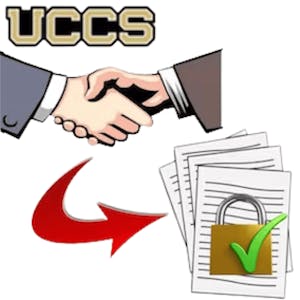Requirements Engineering: Secure Software Specifications
About this Specialization
This specialization is intended for software engineers, development and product managers, testers, QA analysts, product analysts, tech writers, and security engineers. Even if you have experience in the requirements realm, this course will expand your knowledge to include new viewpoints, development styles, techniques and tools.\\n\\nFor anyone seeking a graduate degree, certificate, or professional degree in computer science, these courses will additionally give you a broad understanding of how requirements engineering is performed and help you get a first foot forward into your upcoming careers.\\n\\nThe Software Requirements specialization focuses on traditional software requirements elicitation and writing techniques, while also looking at requirements from a security standpoint. In traditional methods, non-functional requirements, such as security, are often ignored overall. In this specialization, students will be introduced to ways of eliciting requirements from stakeholders, how to analyze these requirements, conduct risk mitigation and analysis, prioritize requirements, document, and bring security concerns into the software lifecycle early on.Created by: University of Colorado System

Related Online Courses
Dive into the ultimate guide for mastering data structures and algorithms. This course equips you with foundational to advanced knowledge, making you proficient in critical concepts like Big O... more
Course Overview:\\n\\nIn the \"SIEM Splunk\" specialization course you\'ll delve into Security Information and Event Management with Splunk. It covers SIEM basics, Splunk\'s architecture, data... more
This Specialization covers the fundamentals of strategic financial management, including financial accounting, investments, and corporate finance. You will learn to evaluate major strategic... more
This is the second course in the four-course specialization Python Data Products for Predictive Analytics, building on the data processing covered in Course 1 and introducing the basics of... more
This course will introduce you to Virtual Reality (VR). The course will teach you everything from the basics of VR- the hardware and the history of VR- to different applications of VR, the... more







